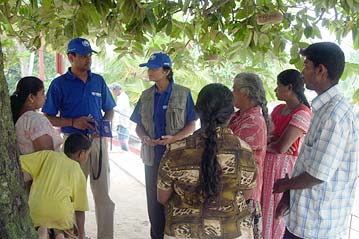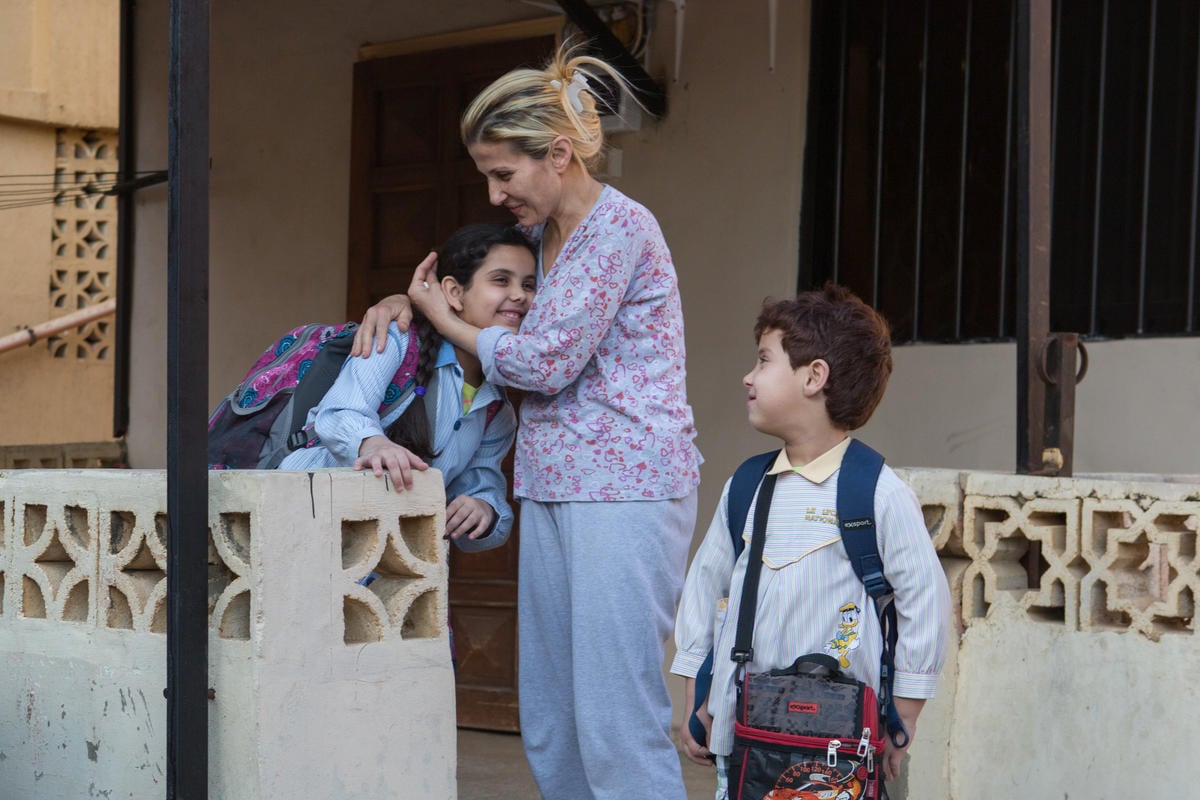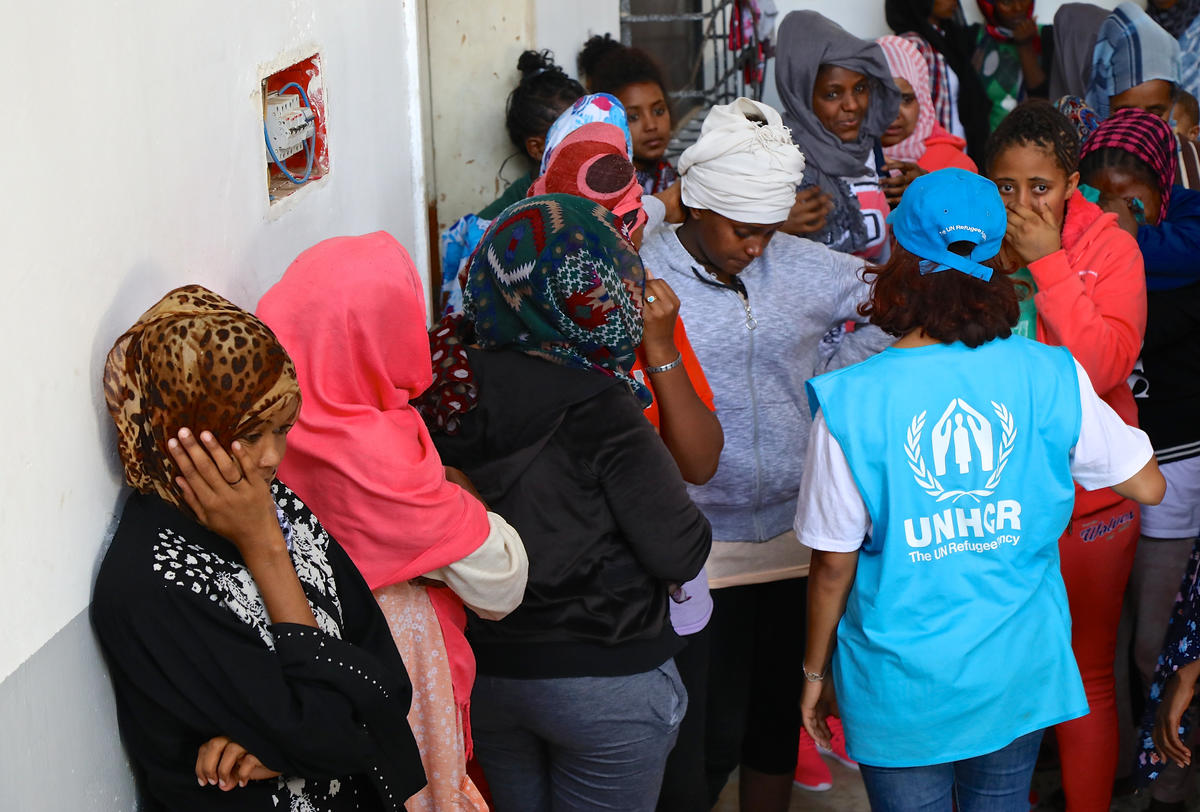Consult Sri Lanka's displaced people before move, urges UNHCR
Consult Sri Lanka's displaced people before move, urges UNHCR

GALLE, Sri Lanka, Jan 11 (UNHCR) - As its emergency relief efforts gather pace in Sri Lanka, the UN refugee agency has sent a team to the south to discuss the longer-term shelter and documentation needs of people displaced by the tsunami.
A UNHCR protection team visited three temporary accommodation centres in Galle, southern Sri Lanka, in response to the government's announcement that it would relocate all displaced people from such centres by January 20. Many of the centres are schools that were scheduled to start the new term on Monday.
"While we recognise the importance of starting school on time, we're concerned about how the relocation is being conducted," said UNHCR protection officer Aurvasi Patel. "People should not be moved again and again, and they should be consulted on the relocation process. It's also crucial that the relocation site has proper shelter and sanitation facilities."
One of the centres UNHCR visited was St. Aloysius school, an elite boys' school hosting 101 displaced people as of last Saturday. The local authorities had told them they would be moved out by Saturday night to an unnamed location. Either that, or they could move in with their relatives or neighbours.
Upset, a group of 15-20 people gathered round the UNHCR team to discuss their problems. "The school principal has been pressuring us to leave," said a man who lost his home near the sea. "When the NGOs bring water and relief items, the teacher tells them there's no need."
Some displaced people told UNHCR that if they had a choice, they would not move because many of their children attend school here and cannot afford to take a bus if they were to move to a more distant site.
"I don't want to go, but I will if the government gives me a plot of land," said a woman in the group, echoing the authorities' promise of land for relocation. "We need a place to go for our future, that's the most important thing," added another man.
In response to UNHCR mediation, the local government representative pledged not to throw the displaced people out of the school until they had a suitable place to go. When UNHCR visited the school again on Monday, more people had left on their own to stay with relatives, and the local authorities had set aside some classrooms to house the remaining 30 displaced people.
The longer-term shelter situation is still unclear. Many displaced people whose homes were only partially destroyed have gone back on their own. Some Galle residents told UNHCR they want the government to give them land away from the sea - but not too far away because they still needed to fish for a living.
"Nobody wants to stay near the sea anymore. They're afraid of it," said one man at a temporary shelter in a temple in Galle. Added a woman: "When I think of the waves, I feel like I'm being chased by a hundred elephants. I will never move back again."
In addition to the psychological trauma, there are also legal issues involved in moving home. Some of the displaced people told UNHCR they lost their title deeds in the tsunami. Others said they owned the land but had no deeds and had been paying taxes, the receipts of which were also lost in the waves. Yet others admitted they had no legal claim to their previous homes.
"This is a very complicated issue," said UNHCR's Patel. "We are working with the Sri Lankan Human Rights Commission to help the displaced people receive personal and property documentation."
Summing up the challenges ahead, UNHCR Coordinator in Sri Lanka Neill Wright said, "At this stage, we are coming to terms with the immediate life-threatening needs of those who have been displaced by the tsunami. Within a week or two, we should be looking at how to sustain the very accelerated level of relief distribution and support for the next six months. Beyond that, it could take as much as 10 years, as UN Secretary-General Kofi Annan said, to fully restore the housing, infrastructure and support needed to resume normal life in Sri Lanka."
By Vivian Tan in Galle, Sri Lanka








